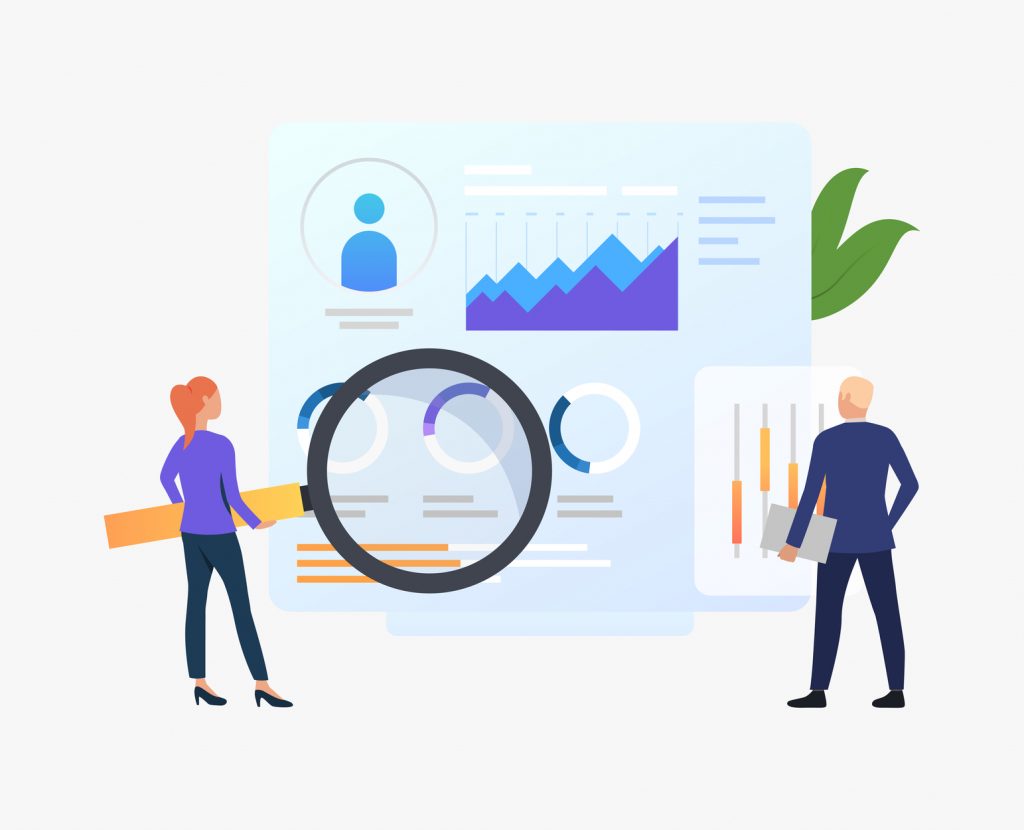We often use the terms “web analytics” and “digital marketing analytics” interchangeably. However, these two practices are not the same. While web analytics explains your website’s performance, digital marketing analytics provides a broader context and helps you turn statistics into measurable objectives.
Quick Links
Here is how to use digital marketing analytics to boost your business.
What is the Difference Between Digital Marketing Analytics and Web Analytics?
Page load times, page views, traffic by channel – those are just some of the numerous metrics you use to monitor website performance. However, if you want to look at the bigger picture and understand how your marketing efforts impact your business, then web analytics is not enough.
Unlike web analytics that focuses on your website performance solely, digital marketing analytics tools observe different digital marketing channels, such as email, blog, social networks, and organic search. That way, they connect business activities and help you determine which marketing techniques contribute to your ROI.
Digital Marketing Analytics Provide Comprehensive Insights
Digital marketing analytics provides you with a full picture of your online presence. The data you collect will help you turn business objectives into actionable steps and measurable goals.
Digital marketing analytics helps you compare your marketing channels.
Say you are running a small business in Melbourne. You have already hired a trusted SEO company from Melbourne to improve your organic traffic, built your presence on social networks, invested in email marketing, registered on local business directories, and started a blog. While you can observe each marketing channel separately, bringing them together may provide better insights.
For example, when analyzing the effectiveness of your email marketing, you probably start by measuring your open rates and CTR. With digital marketing analytics, you can also measure how many of the users that clicked on your link converted into leads. To measure which channel converts the best, you can even compare the performance of your emails with other digital marketing channels.
Focusing on customer data
Unlike website analytics, digital marketing analytics focuses on people and their experiences. They tell you how your website visitors find you. Did they run into your site on Google using relevant keywords, direct search, or via Instagram? Digital marketing analytics also tells you how engaged users are. Do they read your blog, download your eBook, and open your emails?
Observing this data helps you understand customers’ preferences at each stage of their buyer journey. You will be able to adapt your marketing efforts to your customers’ specific needs and, therefore, engage and convert them faster.
Attributing revenue to specific marketing channels
Investing in a wide range of marketing channels does not make sense if you do not analyze which ones deliver the best results. By using marketing attribution, you can identify the channels that are converting your audience into leads and, ultimately, customers.
How to Get the Most out of Digital Marketing Analytics?
One of the most common problems marketers face is calculating the ROI of their marketing activities. There are many reasons why you may struggle to measure digital marketing ROI, including the lack of realistic goals, not setting clear targets, not calculating the right metrics, or not having the right tools to measure success.
To overcome these problems, you need to use digital marketing analytics strategically.
Set clear goals
To measure the success of your digital campaigns, you first need to set SMART goals. Each objective you create needs to be smart, measurable, achievable, relevant, and timely. They help you organize your marketing team’s activities towards achieving specific and well-defined targets.
For example, just measuring website traffic is not enough. You also need to know what the sources of your website traffic are. Above all, you should also measure the relevancy of your traffic by measuring conversions, such as leads generated or sales.
Centralize your reporting efforts
To get insights into different marketing campaigns, marketers often use a wide range of digital analytics platforms, such as email analytics, social media analytics, website analytics, blog analytic, etc. As mentioned above, fragmented data analytics cannot provide comprehensive insights into the effectiveness of your digital marketing strategy.
Fortunately, there is a wide range of digital marketing reporting tools. They integrate with most digital marketing analytics tools you use and let you set specific goals for each campaign. You can choose your priorities, as well as customize the metrics you track on a single dashboard.
Over to You
If you still rely on web analytics tools, you will fail to observe your digital marketing efforts holistically. Digital marketing analytics lets you analyze all digital marketing channels you use. It helps you identify the most effective marketing techniques, better connect with your customers, and make informed marketing decisions in the future.

